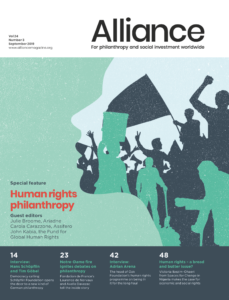We live in a world where we see a vicious cycle being recreated where history repeats itself and more civilians are left harmed as a result of the higher powers. The Middle East and North Africa region continues to face overwhelming challenges, with multiple and complex emergency situations on an unprecedented scale. According to a recent UNCHR report from 2018, there are 10.5 million people that were internally displaced from conflicts in Iraq, Syria and Yemen; three of the largest humanitarian and displacement crises in the world. In addition, 7.2 million refugees and asylum-seekers were displaced in countries across the region and further abroad as a result of political and religious wars.
The Universal Declaration of Human Rights, article 13 (a); states ‘Everyone has the right to leave any country, including his own, and to return to his country’. However, that is not the case with most refugees and the most obvious reason behind it is because it is simply no longer safe to go back home and so the refugee camp becomes their new home. This of course has a larger impact on the refugees who are then given limited education, healthcare and socio-economic status, resulting in refugees having limited rights or close to no rights at all in counties such as Lebanon.
Lebanon is home to approximately 1.5 million Syrian refugees and another 174,000 registered Palestinian refugees; all of which are denied their basic human rights. Due to Lebanon’s residency policy it makes it difficult for refugees to maintain legal status, heightening risks of exploitation and abuse and restricting refugees’ access to work, education and healthcare. More so, an astonishing 74 per cent of Syrian refugees are detained due to unlawful presence in the country despite being refugees fleeing their own country in order to be safe.
If a nation is limiting these basic rights, how do they expect to have better economic growths? Why are nations such as Lebanon, Iraq and Jordan not investing enough or at all to the refugees who could easily contribute to the country’s’ economy?
This is where local businesses should step up and support refugees by tackling large scale systematic issues that politics don’t seem to be solving. By joining forces through cross sectorial partnerships, they can make a bigger impact on our society. I am not talking about CSR only; I am talking about businesses drastically changing their business plans by implementing new strategies in impact investing and social finance where they can benefit financially as well as impacting society but still making a return of investment. If policy makers push more businesses to apply this method through their business plan, then we can see a larger scale of impact quicker than what we see today. Our planet is at its peak of crisis, from war on religion, to war on weapons and power, poverty, climate crises and human rights which now more than ever seem to be just a theory and nothing more unfortunately.
Businesses across the middle east should look at investing in refugee camps where thousands of refugees are vulnerable; facing strict policy regulations and limitation to basic education and health care. If those doors are opened to them; we could see great change on a human level but also on a state level as well. Going back to the circle of life; if you provide good education from an early stage for a child and support them through, up until they graduate, then they would be able to built the right skills and knowledge to find jobs which will provide to the economy and decrease poverty, crime and unemployment.
Business can invest in small enterprises on ground as well; local shops and business which could provide a better sustainable investment for both ends. A good example of that is what the World Food programme did in al Zaatari camp, Jordan. They launched the WFP Health Kitchen Initiative for Syrian women who were employed to cook fresh, healthy school lunches for the camp’s boys and girls using locally grown vegetables, grains and fruit. These homegrown school meals provide children in need with the right nutrition and energy to focus in the classroom while supporting local food producers and providing jobs to primarily female-headed households in Zaatari.
Middle East family business, contribute to more than 60 per cent of the GDP and have a tradition of philanthropic activity through charitable donations or ‘zakat’; meaning the purpose of giving is already imbedded culturally and religiously; so why not explore impact investing as a means of innovative financial mechanisms to further boost and scale impact in the region.
Lastly, don’t forget that human rights have everything to do with businesses in the Arab region. Companies need to step up and not be afraid to openly discuss issues facing their region and be able to contribute more effetely by expanding their relationships with the public sector to eliminate the increasing number of refugees and their limitations within the refugee camps.
Rola El Chami is Programme Advisor at Saïd Business School, University of Oxford
 At $2.8 billion per year, Human rights funding amounts to 5 per cent of all giving.
At $2.8 billion per year, Human rights funding amounts to 5 per cent of all giving.
Yet the very idea of the open, liberal, and democratic society underpinned by respect for human rights is under attack. Explore the eco-system of funders and activists stemming the tide.






Comments (0)